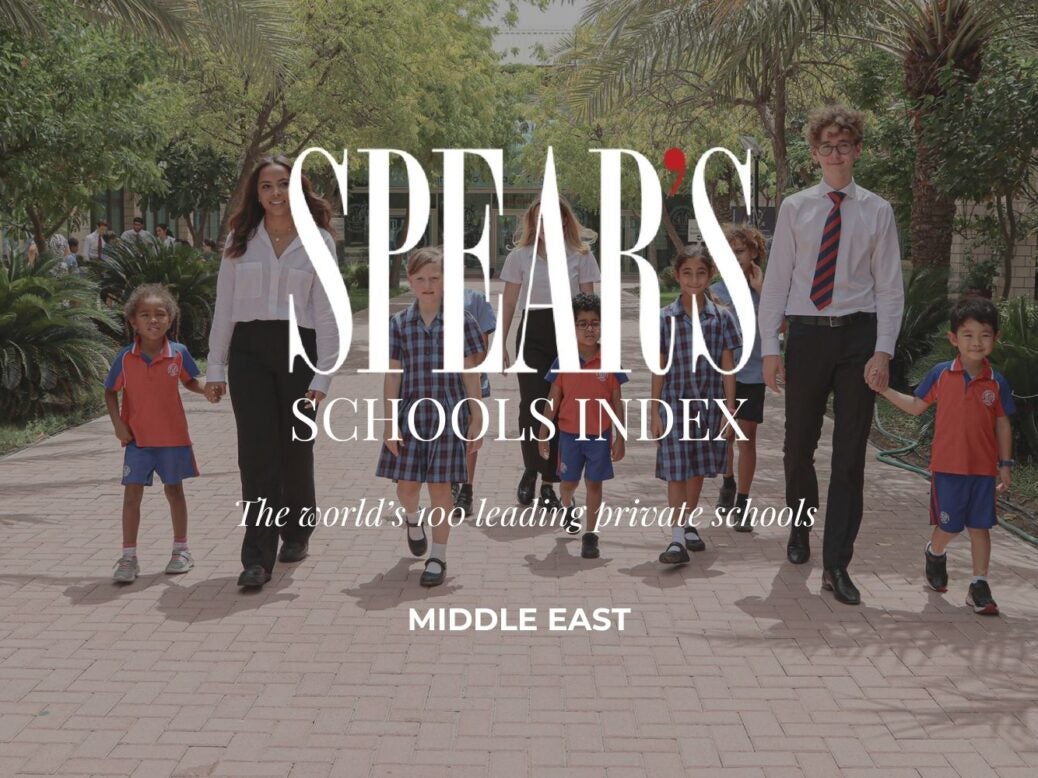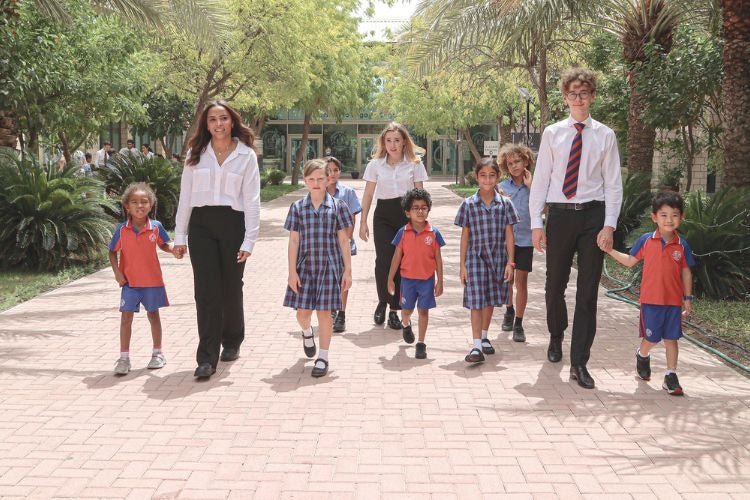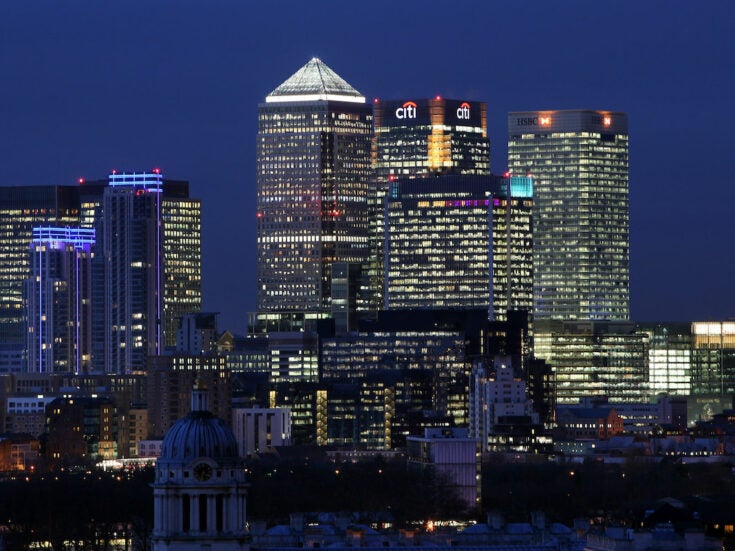
In the Middle East, the demand for world-class education is ever-growing, particularly among HNWs seeking the best for their children. The region is home to a selection of elite private schools, including prestigious branded names, that offer not only quality academic programmes but also an environment conducive to the development of future leaders.
The educational landscape in the Middle East has seen significant growth, driven by both large organisations and prestigious international schools. Groups like GEMS Education and Nord Anglia Education have become key players in shaping the region’s educational landscape while British school brands like Repton and North London Collegiate—both of whom feature in the 2025 edition of the Spear’s Schools Index—have expanded their influence internationally.
These renowned schools—many of which have Olympic-sized pools, private chefs and cinema-style auditoriums—blend international educational standards with a deep respect for local cultural values. For HNWs, enrolling their children in these prestigious schools is not just about securing an outstanding education; it’s a strategic investment in their child’s future, social standing and access to opportunities.
Spear’s has curated a list of the best private schools in the Middle East for (U)HNWs, taking into consideration a range of key factors. From academics and tailored curricula to exceptional extracurricular offerings and state-of-the-art facilities, our selection highlights the schools that provide not just an education, but a well-rounded experience.
Each school on the list has been evaluated by our judging panel for its ability to cultivate leadership, independence and open-mindedness.
Click the links below to jump to a section of this article:
- Methodology
- Top private schools in the Middle East: some names to know
- The complete list of top private schools in the Middle East
- Find out more
[See also: Introducing the Spear’s Schools Index 2025]
Methodology
Spear’s has worked closely with the expert team at Thuso to refine the methodology underpinning the index, and to convene an expert panel of leading international educationalists to contribute their knowledge and insight to the research and selection process.
The Spear’s Research Unit collected data and information directly from candidate schools, using a combination of online forms and interviews. This was supplemented with additional research and by intelligence and insight from Thuso and the panel of expert educationalists.
The Spear’s Schools Index has also been underpinned by the following key principles:
- While examination results and academic attainment are key considerations, they are not the only thing that matters. Leading schools are not necessarily the most academic. ‘Hot houses’, therefore, are not to be viewed with approbation.
A wide range of social, cultural, and pastoral factors have been weighed in finalising the index. In some cases, some schools with strong academics have been omitted where they fall short in relation to these wider considerations. Notably, the team have been cognisant also of ‘cultural’ and ‘value based’ factors which are of growing concern in relation to many families. This is especially relevant in a climate in which some schools may be viewed as adopting an ‘indoctrinatory’ approach that might risk stifling free debate and the associated critical thinking. - Families are increasingly mobile, with new global cities emerging as key hubs. This is particularly the case for cities such as Dubai, as well as established regional hubs in Europe, Africa, Latin America, South-East Asia, and the Pacific. Likewise, a growing number of families, often citing concerns over cultural considerations, are opting for more ‘traditional’ institutions, in Africa, East Asia, and the Middle East, in preference to institutions in the United Kingdom, the United States, and Switzerland.
- Reputation and standing are not insignificant. The reputation and standing of a school shape and influence its character, the parents and pupils it attracts, and its position both regionally, and internationally. In particular, some of the schools best established in the Index continue to draw many generations of international families, demonstrating the extent to which they have retained the trust of alumni.
Further information about the composition of the panel is available here.
Top private schools in the Middle East: some names to know
Swiss International Scientific School Dubai
- Focus: Academic excellence with intercultural understanding
- Country: United Arab Emirates
- Day fees: $15,700–$29,600
- Boarding fees: $63,400–$68,100

Swiss International Scientific School Dubai (SISD) offers a comprehensive education from pre-kindergarten to Year 12, following the International Baccalaureate (IB) curriculum. The school’s multilingual approach includes instruction in English, French and German, providing students with valuable language skills.
SISD is equipped with impressive facilities, such as science labs, a performing arts theatre, an Olympic-sized swimming pool, and sports courts for basketball and tennis. What truly makes SISD unique is its commitment to sustainability, with eco-friendly initiatives integrated throughout the campus.
Read Swiss International Scientific School Dubai’s full profile at Spears500.com
Doha College
- Focus: Cultivating a passion for learning
- Country: Qatar
- Day fees: $10,800–$20,600
Serving Qatar’s increasingly large international community from its Al Wajba campus, Doha College is one of the state’s best-performing schools. Founded in 1980, Doha College is an international school for children between the ages of 3 and 18, following the UK national curriculum.
Alongside the wide range of exam subjects are a host of co-curricular activities, including fencing, debate, many musical opportunities and, continuing to follow the British model, the Duke of Edinburgh’s Award. By nurturing both academic and personal growth, Doha College ensures that its students are equipped with the skills and experiences needed to succeed in the future.
Read Doha College’s full profile at Spears500.com
St Christopher’s School Bahrain
- Focus: Educating for a shared humanity
- Country: Bahrain
- Day fees: $12,200–$22,800

Achieving the ‘gold standard’ from British Schools Overseas (a UK governmental inspection scheme), St Christopher’s is a leading school among expatriates residing in Bahrain. It has close ties to the country’s government, with top students selected for HRH the Crown Prince and Prime Minister’s scholarship programme.
The school believes in instilling in its students characteristics central to their future success: compassion, confidence, commitment, courage, creativity and curiosity. Established in 1961, St Christopher’s is one of the oldest schools in the country. It relies on metacognition and pedagogical strategies to ensure that students are equipped with the best tools to enhance their learning.
Read St Christopher’s School Bahrain full profile at Spears500.com
Repton School Dubai
- Focus: Fostering courage and curiosity
- Country: United Arab Emirates
- Day fees: $15,200–$27,300
- Boarding fees: $41,200–$47,000
Known by some as the ‘Hogwarts of the Middle East’ with its towering turrets and bricked archways, Repton School Dubai is one of the region’s leading schools, attracting children of UHNWs, celebrities, prominent figures and Middle Eastern royalty.
Maintaining its close links with its sister school Repton UK, it offers a UK curriculum with GCSEs and A-Levels. Students also have the option of opting for the IB diploma programme. While academically intensive, 100 per cent of pupils at Repton Dubai pass the IB programme, and in 2024, 14 per cent of the graduating class achieved 40 points or more.
Read Repton School Dubai’s full profile at Spears500.com
The complete list of top private schools in the Middle East
Find out more
- For further information about the Schools Index, please email research@spearswms.com; we aim to respond to all queries within two working days.
- For commercial enquiries and questions relating to enhanced profiles and packages, please contact Commercial Director Shady Elkholy: shady.elkholy@spearswms.com
- To keep up to date with the Spear's 500, subscribe to our magazine, newsletter and follow Spear's on Linkedin and Instagram.
- If you have missed calendar deadlines for our research cycles in 2025, you can still register your interest for updates about upcoming research and rankings.
- Click here to order a print copy of The Spear's 500.






